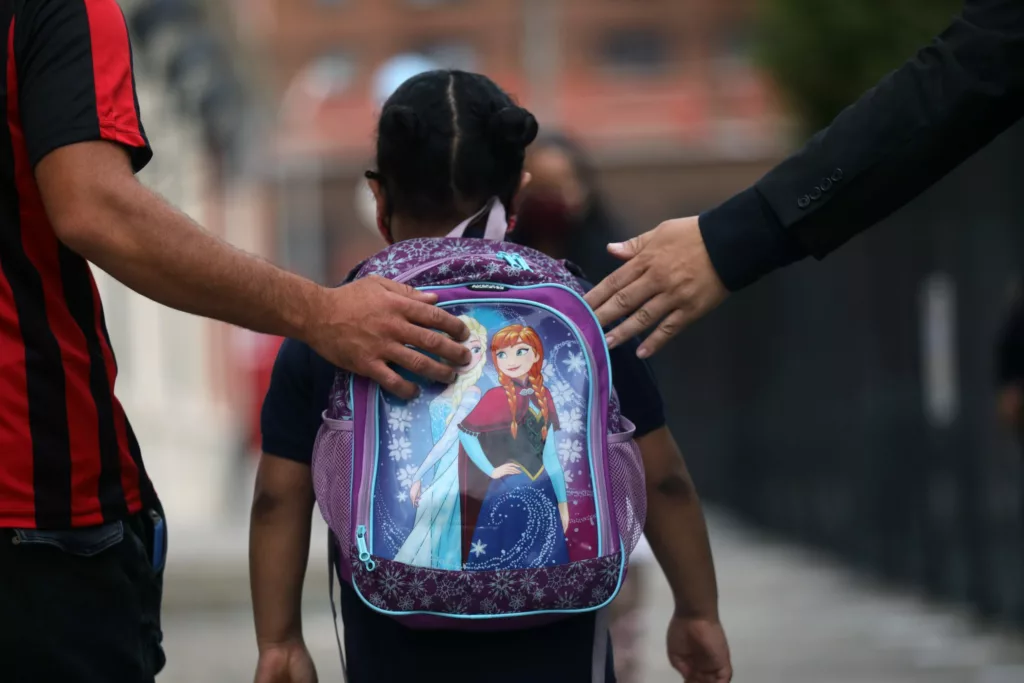[ad_1]

Get important education news and analysis delivered straight to your inbox
I spent the last year trying to find out how often students are transferred to a new school as a form of discipline, a practice that allows districts to effectively hide expulsions under a gentler name. Most people I spoke with described the process as an issue affecting adolescents. But toward the end of my reporting, I spoke with a researcher who said the practice is rampant in preschool.
J. Luke Wood, a professor at San Diego State University, and a team of his fellow researchers interviewed parents of young Black children for a project unrelated to transfers, but the issue kept coming up. Parents of preschoolers kept telling the team they had been counseled to switch their child’s school to avoid a disciplinary record, but were assured this was not an expulsion
“It seemed like they were using voluntary strategies to make families think [the schools] were doing them a favor, when really they were doing the exact opposite,” Wood said.
SCHOOL DISCIPLINE
Check out Hechinger’s coverage of school discipline issues.
Experts and early childhood advocates have long argued that discipline for the littlest learners is opaque. What information is available suggests that small children are routinely punished in school: A 2005 study by Yale researchers found preschoolers are more likely to be expelled than students of any other age group. And Black preschoolers are disproportionately represented among those kicked out.
Wood now calls transfers a significant issue. “We talk a lot about suspensions, expulsions,” he said, “but the dark part of this conversation is voluntary and involuntary transfers.”
In 2021, the team published “Suspending Our Future: How inequitable disciplinary practices disenfranchise Black kids in California’s public schools,” calling for transfers to be treated like other forms of exclusionary discipline and require clear public reporting.
In California, the state department of education asks schools to log every student transfer, but the categories for transfers overlap and none of the data is published online.
Public reporting, like that recommended by Wood’s team, would help clarify disciplinary transfers for many students. But more would be needed to document what happens in largely private childcare settings to the millions of children under the age of 4.
The Center for Law and Social Policy, a nonprofit think tank based in Washington, D.C., published a report last week advocating for more and better data in that area.
The CLASP report calls for federal and state programs, including Head Start, to collect discipline data on publicly funded centers and track disparities by race and ethnicity. The report also suggests the creation of a federal office tasked with protecting the civil rights of the youngest children to respond when protected groups are disproportionately punished by teachers. The U.S. Department of Education’s Office for Civil Rights already does this for older students.
This push for more discipline data comes after years of nationwide pressure to reduce suspensions and expulsions. Now, as overstretched schools struggle to respond to challenging student behavior in the wake of the COVID pandemic, experts across California say they are resorting to transferring more students.
That may soon change. Following a lawsuit brought by Neighborhood Legal Services of Los Angeles County as well as questions posed by The Hechinger Report, the California Department of Education announced a new tip line for reporting districts that are effectively masking expulsions as transfers. The department is also preparing official guidance to manage district use of disciplinary transfers.
If your child or someone you know has been transferred as a disciplinary response, email me at [email protected]. I’d love to hear your story.
This story about preschool expulsion was produced by The Hechinger Report, a nonprofit, independent news organization focused on inequality and innovation in education. Sign up for Hechinger’s newsletter.
[ad_2]
Source link
Meet Our Successful Graduates: Learn how our courses have propelled graduates into rewarding
careers. Explore their success stories here!
Discover More About Your Future: Interested in advancing your teaching career? Explore our
IPGCE, MA, and QTS courses today!

Explore Our Courses: Ready to take the next
step in your education journey? View our
comprehensive course offerings now!

